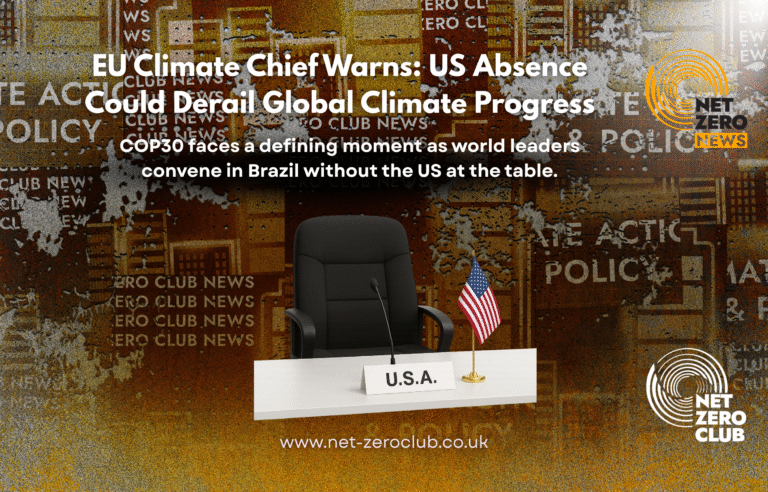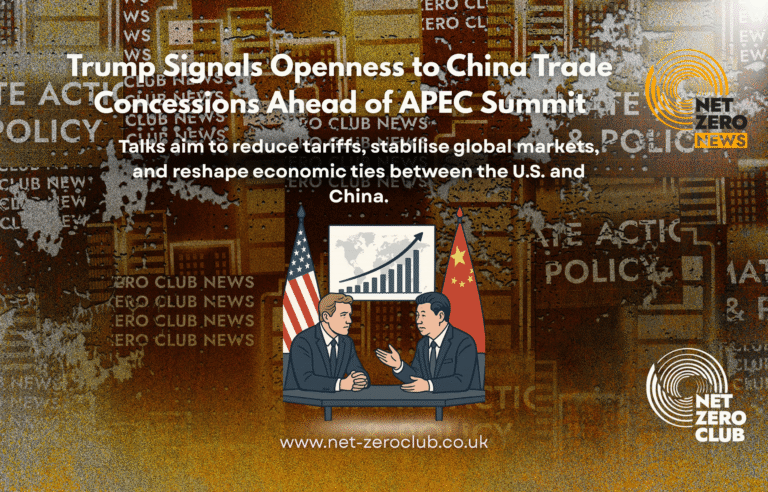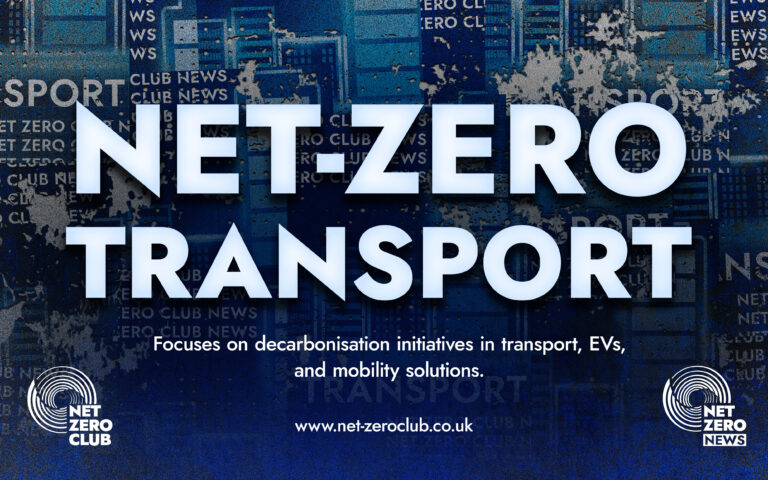Emma Pinchbeck on UK Climate Change: An Exclusive Interview

Welcome, Net Zero News readers!
In the ever-evolving landscape of climate policy in the UK, one figure stands at the forefront of the nation’s efforts towards a sustainable future: Emma Pinchbeck, the Chief Executive of the UK’s Climate Change Committee (CCC). Appointed in November 2024, her leadership is pivotal in steering the country towards its ambitious net-zero targets. The CCC, a statutory body established under the Climate Change Act of 2008, serves as the official adviser to the government on climate change mitigation and adaptation, a role that has never been more critical as the world grapples with the escalating impacts of climate change.
Under Pinchbeck’s guidance, the CCC has been instrumental in delivering regular progress reports to Parliament and providing vital recommendations on future targets aimed at cutting the UK’s greenhouse gas emissions. With her extensive background as the former chief executive of Energy UK, the trade association for the nation’s energy companies, she brings a wealth of knowledge and experience to a role that demands both innovative thinking and strategic foresight.
In a recent interview, Pinchbeck shared her insights on the UK’s progress towards net-zero, the challenges ahead, and the opportunities for transformation within the economy. “A 50% reduction in emissions is pretty good going,” she remarked, highlighting the effectiveness of the Climate Change Act in driving significant change. The increase in the pace of emissions reductions following the act’s introduction is evidence that the legislative framework has indeed catalysed a real shift towards a greener economy.
Pinchbeck emphasised that the success in cutting emissions is not a result of merely exporting or offshoring emissions, but rather a genuine shift from coal to renewables. “It’s largely from displacing coal with renewables,” she stated, pointing to the remarkable transition that the energy sector has undergone over recent years. The shift from coal to renewable energy sources represents a triumph of governance and technology, demonstrating that the UK can lead the way in climate action.
Looking ahead to 2050, Pinchbeck painted a picture of a world where the things we cherish remain intact, while the aspects we find less appealing are improved. “I think it’s about keeping the stuff that we really love. And then making the stuff we don’t love better,” she said, suggesting that the journey towards net-zero need not be about radical upheaval, but rather about enhancing and preserving the elements of life that define our communities.
She also noted that households equipped with clean technologies in 2050 are likely to see financial savings compared to a future dependent on fossil fuels. “We’re pretty sure that a household with [clean technologies] in 2050 will be saving money, relative to a world where we stay dependent on fossil fuels,” she asserted. This optimistic outlook serves to reinforce the notion that transitioning to a low-carbon economy is not only environmentally beneficial but also economically advantageous for families across the UK.
However, the stakes are high. Pinchbeck warned that failing to reach net-zero could have dire consequences. “Something that is in the memories of people in the 1970s as a one-off heatwave is going to be very common for our children,” she cautioned. Such a future would be characterised by increased frequency and severity of climate-related events, underscoring the urgency of the CCC’s mission.
The current political landscape presents its own challenges, with opposition parties threatening to repeal the Climate Change Act. In response, Pinchbeck reaffirmed the CCC’s commitment to providing objective, evidence-based advice that reflects the priorities of various political parties. “Whenever we’re doing our advice, we try and think about how it reflects the priorities of different political parties,” she explained.
With energy costs rising sharply, Pinchbeck addressed the root causes of these increases. “Over 80% of the rise over the last 10 years in energy bills has been about the price of gas,” she explained, highlighting the UK’s reliance on gas for heating and power generation. This dependency not only exposes consumers to volatile international gas prices but also complicates the transition to a more sustainable energy system.
Amidst these challenges, Pinchbeck remains optimistic about the technological advancements that will drive the UK’s decarbonisation efforts. “We’re an ‘all-of-the-above’ country, and I think that’s a good thing,” she stated, advocating for a diverse energy mix that promotes resilience in the energy system. This approach is essential as the UK looks to balance reliability with sustainability.
As the nation prepares for the upcoming renewable energy auction, Pinchbeck is keenly aware of the importance of cost in the transition to a decarbonised energy system. “We’re looking at that relative cost the whole time,” she said, expressing confidence that a decarbonised energy system will ultimately prove cheaper than its fossil-fuel counterpart.
Decarbonising the industrial sector presents another significant challenge, but Pinchbeck is adamant that these changes can coexist with a thriving industrial future. “There should be a really vibrant future for our industrial sector,” she asserted, countering the narrative that prioritising industrialisation must come at the expense of net-zero ambitions. By investing in innovative technologies and sustainable practices, the UK can pave the way for a robust industrial sector that contributes positively to both the economy and the environment.
The seventh carbon budget, which is currently under consideration, will play a crucial role in setting the trajectory for emissions reductions in the coming years. Pinchbeck emphasised the importance of parliamentary engagement in shaping the details of the budget, stating, “What exactly [the budget] looks like is down to parliamentarians and government [to] hash out.” The outcome of this process will have lasting implications for the UK’s ability to meet its climate targets.
In her role, Pinchbeck has also recognised the need for improved communication around climate issues. “I think [the British are] natural environmentalists,” she noted, suggesting that there is an inherent willingness among the public to engage with climate topics, provided they are presented clearly and effectively. She believes that the government has a responsibility to communicate the rationale behind climate policies and the benefits of transitioning to a greener economy.
Moreover, the rise of climate misinformation presents an additional hurdle in fostering public understanding. Pinchbeck acknowledged the desire for accurate information, particularly from policymakers, stating, “Something that comes back in our social research is a desire for accurate information.” This reflects an urgent need for transparency and clarity in the narratives surrounding climate change and energy policy.
Reflecting on the importance of engaging younger generations in climate discussions, Pinchbeck expressed her awareness of the emotional weight of these conversations. “I’m aware that some of the loss sits with me, not with them,” she said, acknowledging the responsibility to ensure that future generations inherit a world that is not only intact but thriving. By fostering an early appreciation for nature and the environment, she hopes to inspire a sense of stewardship among children.
As the CCC continues its vital work in guiding the UK towards its net-zero goals, Emma Pinchbeck stands as a steadfast advocate for transformative change. Her vision for a sustainable, economically vibrant future is rooted in a commitment to preserving what we hold dear while embracing the innovations that will define our energy landscape. The journey towards net-zero is fraught with challenges, but with leaders like Pinchbeck at the helm, there is hope for a greener, more resilient future.
In conclusion, the path to a net-zero future is not merely a destination but a collective journey that requires the engagement and commitment of all stakeholders—from policymakers and industry leaders to communities and individuals. As we navigate this transition, it is imperative that we remain united in our efforts to foster a sustainable world for generations to come.

 Got net-zero news, project updates, or product launches to share?
Got net-zero news, project updates, or product launches to share? 


